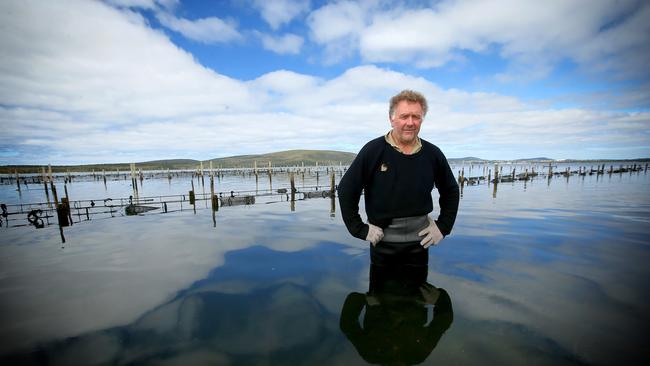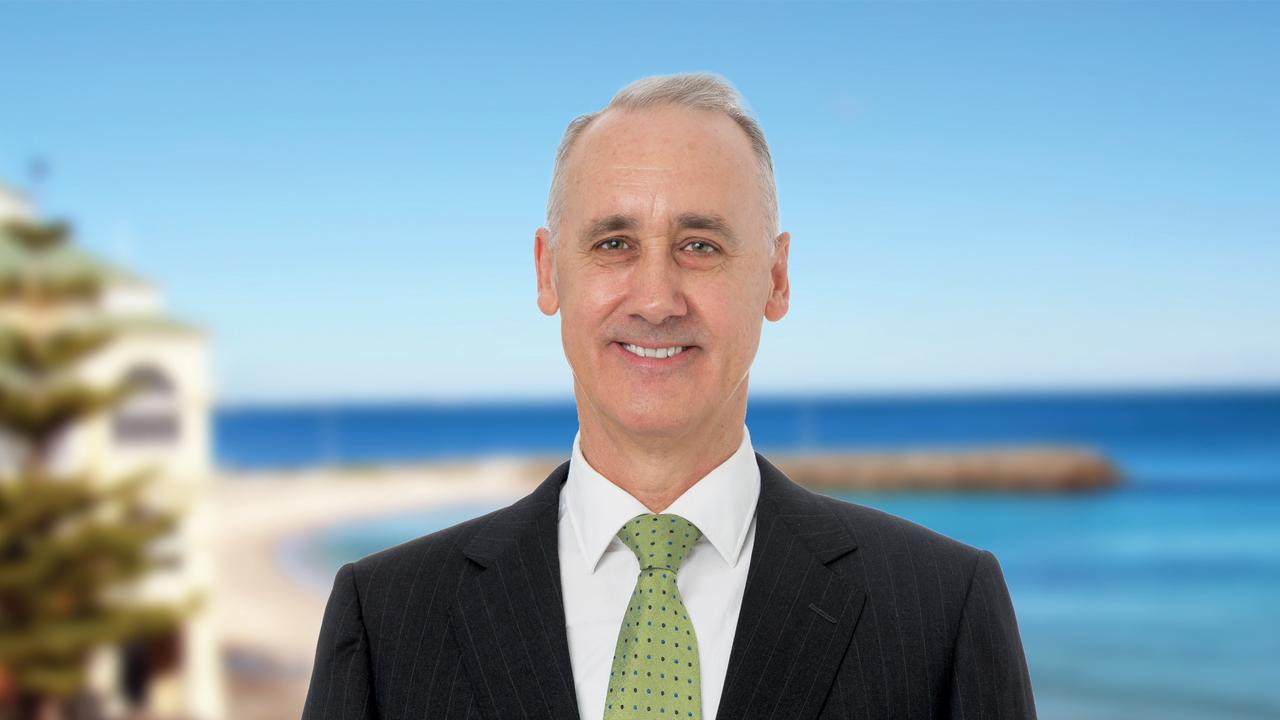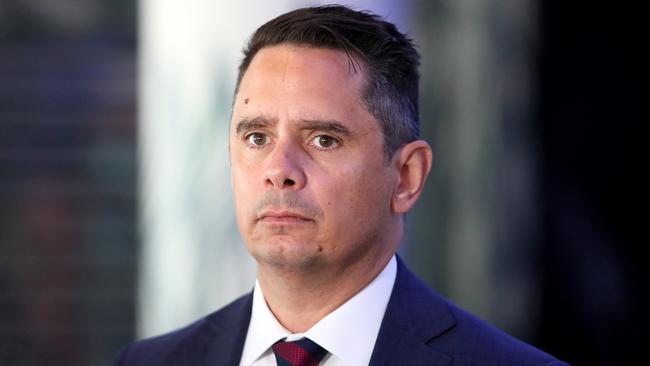WA election: voters ‘on the edge of nowhere’ are feeling the pain
Albany’s economy is growing slower than the molluscs in the calm shallow waters of its own Oyster Harbour.

Albany’s fledgling aquaculture farms produce perfect rock oysters but the venture’s Singaporean owner, a car-hire entrepreneur, has needed patience as the company strives to triple production to 180,000 dozen oysters a year.
Setbacks have included raids on the farm by bream and problems sourcing the spat that grow into restaurant-ready oysters after three years. “Lucky our backer is doing well enough in his other business to absorb the pain we inflict on him,” says the farm’s manager, Gareth James.
There are high hopes for Ocean Foods International’s oyster project but it employs just six locals and everyone knows it cannot be a silver bullet for the former whaling town that has become a health service hub for the ageing.
Albany’s economy grows slower than the molluscs in the calm shallow waters of its own Oyster Harbour. The town’s foreshore is dotted with relics of industries that have gone offshore, gone to Perth or gone bust.
A sluggish economy is the problem facing the Barnett government across regional Western Australia as it tries to cling to power on Saturday. Pauline Hanson’s One Nation is tapping into malcontent in towns such as Albany, where unemployment is running at 7.2 per cent compared with the statewide rate of 6.5 per cent.
At the Senate election last year, when One Nation was a spent force in West Australian politics, the party polled 6.3 per cent in the seat of O’Connor that takes in Albany, the second-highest result in the state behind another regional seat, Durack.
Albany never got the transformation that the construction phase of the resource-sector boom delivered in the iron-ore-rich Pilbara region and across Perth, where wages rocketed as government departments and companies not connected to mining tried to hang on to workers.
Voters left out of the boom, such as Bill Stoneman, feel forsaken by government. “I can’t stand politicians, they’re all as bad as each other,” he says. “What have they got to worry about with the money they’re on? They’ve got no problems at all.”
The 56-year-old lives in one of Albany’s most modest suburbs, Spencer Park, where he repairs and restores motorbikes in his garage. He worked for 14 years at the Albany Woollen Mills, which closed when Asian owners moved production to Indonesia. Before that he worked at Borthwick & Sons abattoir, which closed its doors in Albany in 1993.
Mr Stoneman’s CV is a list of the defunct factories that once helped sustain the town: Southern Ocean Fish Processing, Albany Superphosphates Company and Hunts Canning Factory.
A former state cricketer, he says he makes a bit of extra money coaching juniors. He says he is contemplating voting for One Nation on Saturday. “I am starting to go a little bit that way,” he said. Some within Western Australia’s alliance government quietly consider it ironic that the Barnett government is facing so many tough contests in country seats after a Royalties for Regions program that has pumped $6.1 billion of the state’s mining and onshore petroleum royalties into country towns since 2008, building swimming pools and town halls and bolstering a Futures Fund.
But arguments persist that the money was not always well directed. Retired Albany accountant Chris Harrison, who moved to the West Australian south coast from Hay in NSW 40 years ago, says infrastructure is welcome but the town lacks industry. Excluding pensions, the median income in Albany is $40,800, compared with the national median of $45,000. Just over 13 per cent of Albany residents work in retail, which is the main employer, according to the Australian Bureau of Statistics.
Mr Harrison says it stings each time the government shifts jobs away from Albany to Perth, or to the bigger regional centre of Bunbury further north, as it did recently when the hub for tertiary training colleges in the region was withdrawn from Albany.
“We are sort of on the edge of nowhere,” he said. “Each time the government takes something to Perth or to a bigger centre we feel that, and the jobs that go with it tend to cancel out other progress.”
The region has had a rollercoaster economic ride over the past 40 years. Albany was the world’s last English-speaking port to cease whaling, in 1978, after Greenpeace’s first campaign outside North America. It then relied on agriculture, which is still strong despite the loss of wool processing facilities and the collapse of a massive managed investment scheme that enticed farmers off the land in the 1990s so their pastures could be planted with blue gums. Great Southern had raised a reported $1.8bn from investors when it collapsed in 2009, owing about $600 million.
Many residents feel government gave up hope a long time ago that the town could ever be more than a cheap place to retire surrounded by boutique tourism and winery businesses.
It is not easy for school leavers such as Lachlan Wilson, 18, who says he grew up believing his home town had little to offer. He was struggling last year when he joined a novel program overseen by the Great Southern Employment Development Committee, which is determined to reduce youth unemployment.
In the Young Harvest scheme, Mr Wilson grew garlic and tended to bees as a way of getting ready for a paying job. Last month, he became the 16th graduate of the program since it began last July to begin work. He now works at Fletcher abattoir at Narrikup, 34km north of Albany.
The job has come just in time — he and partner Chantelle Terrell are expecting a baby in June. Lachlan says he feels very lucky.
“Looking around at the abattoir I see the kids I went to school with — we’ve all ended up in the same place,” he said.




To join the conversation, please log in. Don't have an account? Register
Join the conversation, you are commenting as Logout